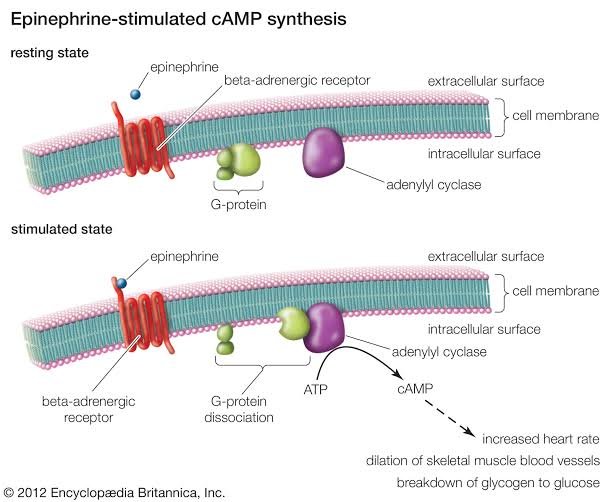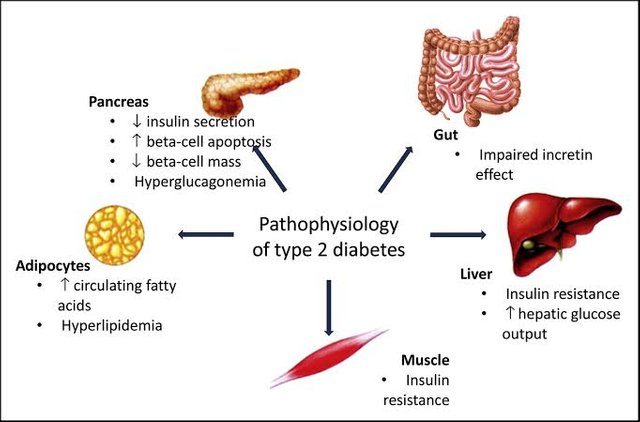Introduction to medical biochemistry and medcine, roles and interrelationships.
INTRODUCTION To MEDICAL BIOCHEMISTRY BIOCHEMISTRY AND MEDICINE, ROLES AND INTERRELATIONSHIPS.
.jpeg)
.jpeg)
https://www.google.com/search?q=biochemistry+and+medicine+roles+and+interrelationships&tbm=isch&ved=2ahUKEwjk5Nni1pHxAhUJixoKHeFoDdUQ2-cCegQIABAC&oq=bioc&gs_lcp=ChJtb2JpbGUtZ3dzLXdpei1pbWcQARgAMgQIIxAnMgcIABCxAxBDMgQIABBDMgQIABBDMgQIABBDOgQIABAYOgcIIxDqAhAnOgUIABCxAzoICAAQsQMQgwFQvIcCWJ-tAmCi0wJoAnAAeACAAeYCiAGODJIBBTItMi4zmAEAoAEBsAEFwAEB&sclient=mobile-gws-wiz-img&ei=anDEYOSHJImWauHRtagN&bih=627&biw=377&client=ms-android-hmd&prmd=visn
Biochemistry is the study of the chemical components of the living system and how these companies interact to account for growth in the young organisms, maintenance in the nature and degeneration in the old. It encompasses large areas of cell biology, molecular biology and molecular genetics.
. General branches of biochemistry: Is a branch of biochemistry that deals with the chemical structures, compositions and transformations common to all llving systems.
. Plant biochemistry: studies the chemical compositions of plants and the transformations in them.
. Veterinary biochemistry: It deals with the chemical compositions and mode of transformations of matter and energy in animals in health and in pathological conditions.
. Industrial biochemistry: It encompasses the compositions and metabolic pathways of different systematic groups with respect to their positions in the physiologic tree.
. Radiation biochemistry: It evaluates the influence of ionisation radiation radiations on the composition of organisms and recommends method of protection of living systems against ionisation radiations.
. Molecular Biology Studies the structure, chemistry, properties and mode of interactions that make up the living system.
. Medical biochemistry: studies the chemical compositions and mode of transformations of matter and energy in humans in health and in pathological state. This branch of biochemistry gives rise to clinical chemistry and chemical pathology.
. Forensic Biochemistry: Is the study of
application of DNA technology in crime management and detection of paternity of a child. The two major techniques employed in forensic science are restriction fragment length polymorphism (RFLP) and short tandem repeat (STR).
WHY DO WE STUDY BIOCHEMISTRY?
Biochemistry is the language of lifel The study of biochemistry is necessary for the understanding of basic functions and mechanisms of the body.
The two principal reasons for studying biochemistry are:
I. TO understand at the molecular level of all the chemical processes associated with living cells. To achieve this objective, biochemists have sought to isolate the numerous molecules found in cells determine their structures, and analyze how they function. Overall biochemical composition of cells and tissues of the body has been determined and the major biomolecules (carbohydra, protein, lipid, DNA and RNA) present have been isolated, their structures and functions established.
ii. The second reason for studying biochemistry is to attempt to understand how life began.
The pace of development of this young discipline is so terrific that the mechanism of biological catalysis, consequences and the control of life processes is no longer a superstition. Genetic engineering has continued to widen the horizon of our knowledge of biological processes. The biochemistry of the nucleic acids lies further broadened the field of biochemistry. The development of methods for sequencing and cloning of DNA has had a revolutionary impact in the study of nucleic acids.
The RELATIONSHIPS BETWEEN BIOCHEMISTRY AND MEDICINE.
Biochemistry as a modern and an advanced level of understanding of the phenomena the biological and medical professions.
A contemporary biological or medical professional can not be proficient in his/her field without knowledge of biochemistry.
Physiology, the study of body functions, overlaps with biochemistry, Immunological techniques have wide use in biochemistry. Pharmacology and physiology. Biochemistry is used in the study of pathology such as information, call injury and cancer; these relationships are not surprising because life as we know it depends on biochemical reactions and processes. In fact, biochemistry has become an inevitable and permanent feature of academic program of biological and medical sciences in the university.
Reference
Edit
"Biological/Biochemistry". acs.org.
a b Voet (2005), p. 3.
Karp (2009), p. 2.
Miller (2012). p. 62.
Astbury (1961), p. 1124.
Eldra (2007), p. 45.
m Marks (2012), Chapter 14.
Finkel (2009), pp. 1–4.
UNICEF (2010), pp. 61, 75.
a b Helvoort (2000), p. 81.
Hunter (2000), p. 75.
a b c d Srinivasan, Bharath (2020-09-27). "Words of advice: teaching enzyme kinetics". The FEBS Journal. 288 (7): 2068–2083. doi:10.1111/febs.15537. ISSN 1742-464X. PMID 32981225.
Nice one son
Great job
Nicely done
Nice one
Wow
I will want to know more
Thanks for this
Stan you did a great job
Wooow.. exactly my field ☺️☺️☺️ thanks for sharing dear